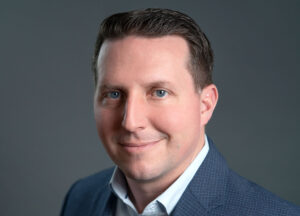
Ian Collins is a licensed clinical social worker and psychotherapist with over a decade of experience treating adolescents and adults for symptoms of severe and persistent mental health disorders. He has worked in multiple settings including juvenile detention, outpatient clinics, university counseling centers, and group practices, also holding administrative roles, including assistant director of a day program and program manager of homeless services. Ian approaches treatment by focusing on empowering clients in a supportive, fun, and respectful manner, using his training in Acceptance and Commitment Therapy (ACT), trauma-informed Cognitive Behavioral Therapy (CBT), Open-Dialogue (OD), EMDR, and Mentalization-Based Therapy (MBT). Ian holds a Bachelor’s in Social Work from East Carolina University, where he was a nominee for the Distinguished Alumni Award, and a Master’s in Social Work from the University of Maryland.
Before completing his formal education, Ian was a touring musician, and recorded and released five studio albums. He is the co-founder of a mobile application that assists the homeless and underserved populations of New York City, called HelpFinder NYC.
A conversation with Ian Collins
Q: Why did you decide to move to this area?
A: I grew up in North Carolina, and lived in Raleigh for three years after college. Now my wife and I, with our almost two-year-old and two dogs, are finding our New York City apartment too small. We need more space and a slower pace that lets us spend more time with family.
Q: What do you believe is unique about ellenhorn?
A: It’s our personal touch with all the clients we work with. It’s focusing on the relationships we’re building with the client, having that be most important for our work. It’s our ability to take time and get to know the clients. ellenhorn clients who’ve been in other treatment programs or with a single professional, have told me that getting to know our team members almost on personal level while working toward goals, helped them feel comfortable rather than like test subjects or subordinate in the relationship. At ellenhorn, we talk about “collaboration vs coercion.” The level of relationship we build allows for that collaboration.
Q: How do you see this model fitting in the Research Triangle area?
A: One of the great aspects of having ellenhorn here is that there’s nothing like it. I know that, having worked in mental health in North Carolina for some time. Our presence here lets clients try a different approach. Also, there’s a really big push for mental health in North Carolina, specifically in the Triangle: a focus on helping people get services, get the help they need. For example, a number of mental health urgent cares just opened in the Raleigh area. So we’re getting into North Carolina at a good time.


